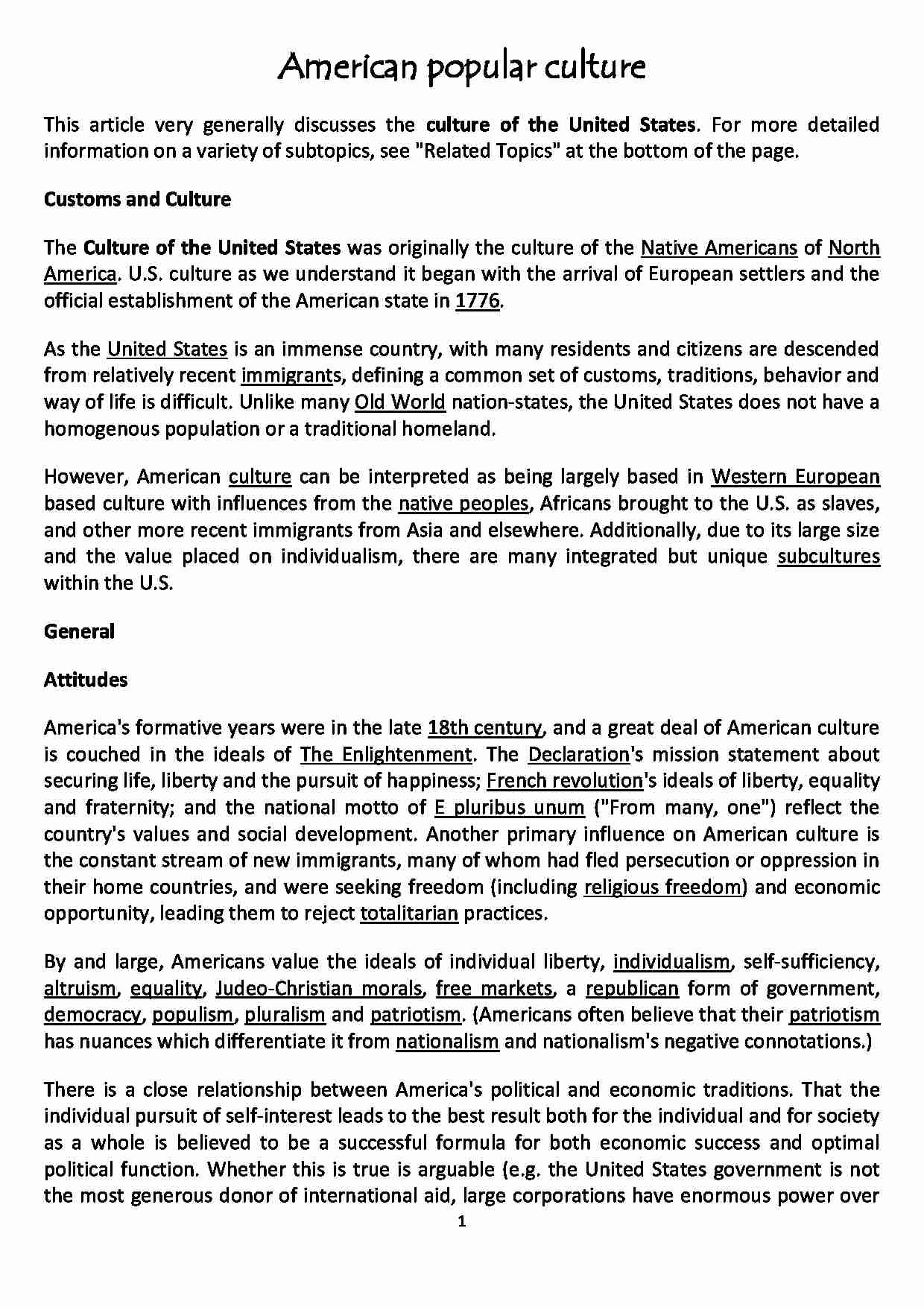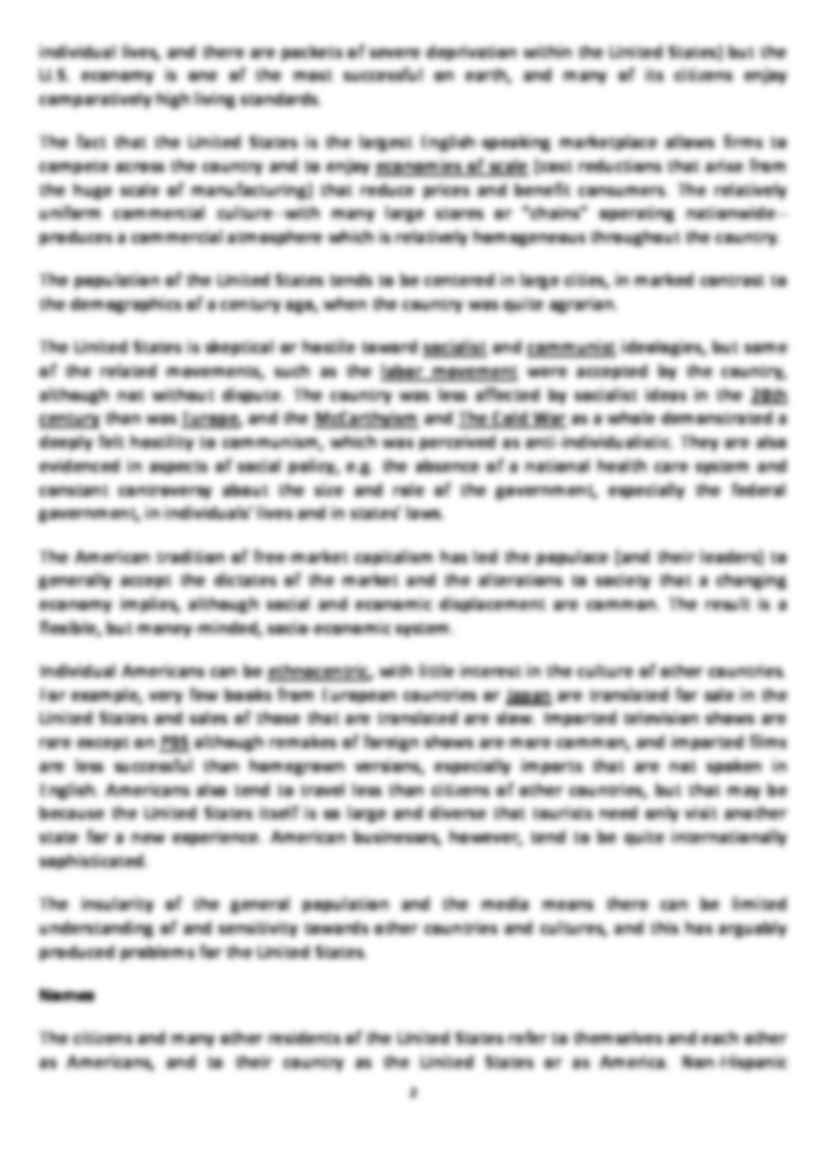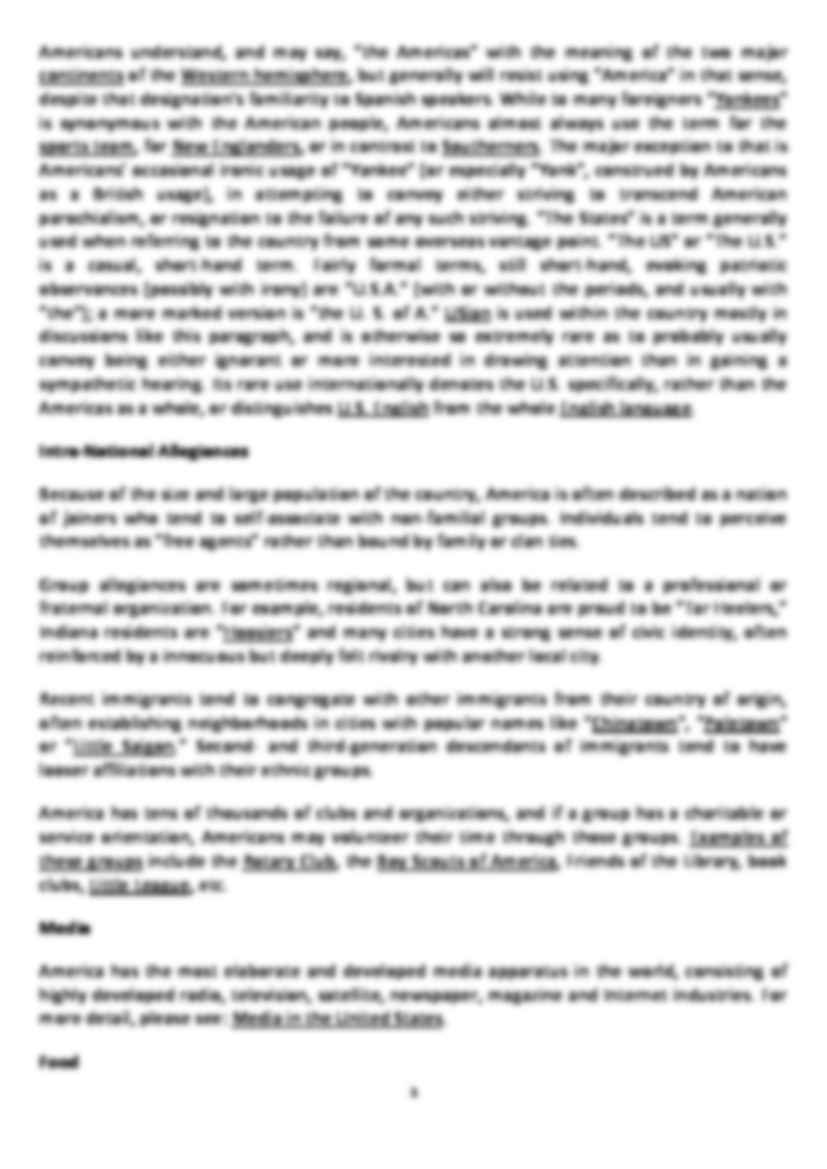American popular culture
This article very generally discusses the culture of the United States. For more detailed information on a variety of subtopics, see "Related Topics" at the bottom of the page. Customs and Culture The Culture of the United States was originally the culture of the Native Americans of North America. U.S. culture as we understand it began with the arrival of European settlers and the official establishment of the American state in 1776. As the United States is an immense country, with many residents and citizens are descended from relatively recent immigrants, defining a common set of customs, traditions, behavior and way of life is difficult. Unlike many Old World nation-states, the United States does not have a homogenous population or a traditional homeland. However, American culture can be interpreted as being largely based in Western European based culture with influences from the native peoples, Africans brought to the U.S. as slaves, and other more recent immigrants from Asia and elsewhere. Additionally, due to its large size and the value placed on individualism, there are many integrated but unique subcultures within the U.S. General Attitudes America's formative years were in the late 18th century, and a great deal of American culture is couched in the ideals of The Enlightenment. The Declaration's mission statement about securing life, liberty and the pursuit of happiness; French revolution's ideals of liberty, equality and fraternity; and the national motto of E pluribus unum ("From many, one") reflect the country's values and social development. Another primary influence on American culture is the constant stream of new immigrants, many of whom had fled persecution or oppression in their home countries, and were seeking freedom (including religious freedom) and economic opportunity, leading them to reject totalitarian practices. By and large, Americans value the ideals of individual liberty, individualism, self-sufficiency, altruism, equality, Judeo-Christian morals, free markets, a republican form of government, democracy, populism, pluralism and patriotism. (Americans often believe that their patriotism has nuances which differentiate it from nationalism and nationalism's negative connotations.) There is a close relationship between America's political and economic traditions. That the individual pursuit of self-interest leads to the best result both for the individual and for society as a whole is believed to be a successful formula for both economic success and optimal political function. Whether this is true is arguable (e.g. the United States government is not the most generous donor of international aid, large corporations have enormous power over individual lives, and there are pockets of severe deprivation within the United States) but the U.S. economy is one of the most successful on earth, and many of its citizens enjoy comparatively high living standards.
(…)
…." Dashiell Hammett and Raymond Chandler pioneered gritty detective fiction that has had great influence on other genres and in other countries. After World War I, authors like Ernest Hemingway and F. Scott Fitzgerald developed new techniques for novels. Other noted American writers include Mark Twain, John Steinbeck, William Faulkner, Sinclair Lewis, Ayn Rand, Zora Neale Hurston, Henry David Thoreau, Rachel Carson, Richard Wright, James Baldwin, Willa Cather and Toni Morrison. U.S. poets with international fame (or notoriety) include: T. S. Eliot, Allen Ginsberg, Ralph Waldo Emerson, Henry Wadsworth Longfellow, John Greenleaf Whittier, Walt Whitman, Emily Dickinson, Ezra Pound, Charles Bukowski, Robert Lowell, Gwendolyn Brooks, Langston Hughes, Ogden Nash, Shel Silverstein, William S. Burroughs, E. E…
… include: Aaron Copland, George Gershwin, and Charles Ives Notable figures in U.S. film American inventor Thomas Alva Edison played an important role in the invention of motion pictures, and David Wark Griffith pioneered a filmic vocabulary that still dominates. Other famous American film directors include Francis Ford Coppola, Martin Scorsese, Stanley Kubrick, Robert Altman, John Ford, Spike Lee, Woody…
…-Gaudens, John James Audubon, Alexander Calder, Dale Chihuly, Louis Comfort Tiffany, Norman Rockwell, Dr. Suess, and Jackson Pollock. Major American architects include Frank Lloyd Wright, Albert Kahn, Buckminster Fuller, Louis Sullivan and Frank Gehry.
13
…
… widespread throughout the United States and their rapid growth internationally has led to a backlash and accusations about the McDonald's-ization of the world. See Cuisine of the United States for a complete list. Clothing Dress is usually casual and informal, and in the Western tradition of pants and a shirt, and dresses for women. The exception to the informality in major cities such as San Francisco and…
... zobacz całą notatkę






Komentarze użytkowników (0)